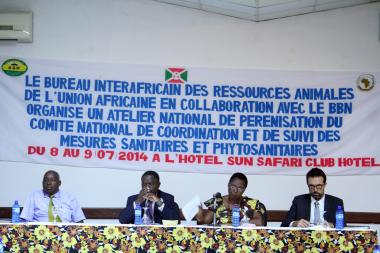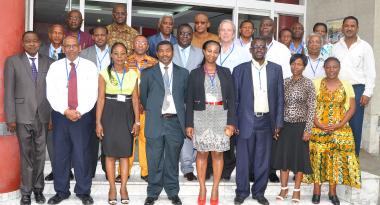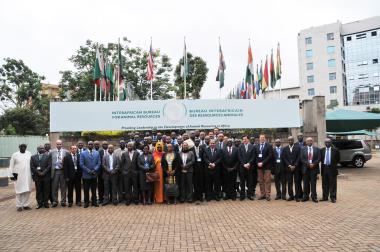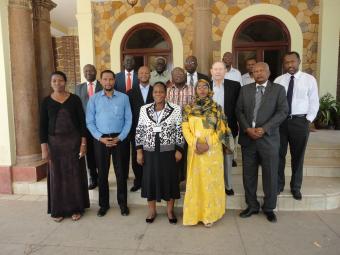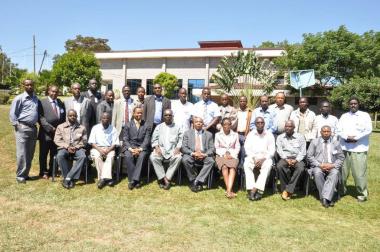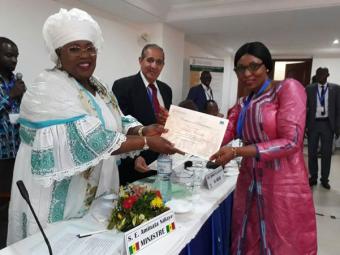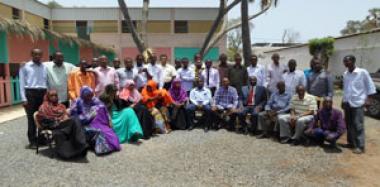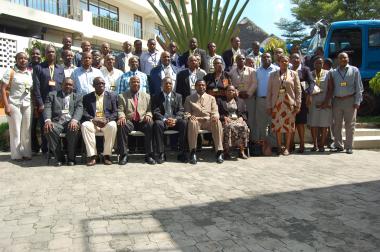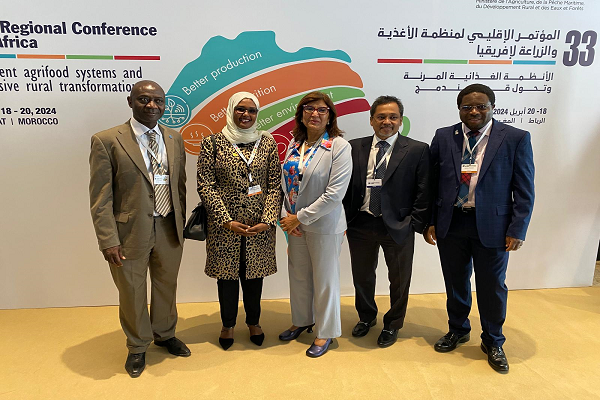
From April 18th to the 20th, 2024, Rabat, Morocco hosted the 33rd FAO Regional Conference for Africa, a forum where important challenges confronting Africa's agricultural sector is discussed. The conference sought to achieve food security and sustainable agricultural production through the practical solutions it offered, with a focus on "Resilient agri-food systems and inclusive rural transformation." The Ministerial session, chaired by H.E. Mohamed Sadiki, the Moroccan Minister of Agriculture, focused on the significance of partnership, funding, and creativity in propelling long-term growth across Africa.
On April 19th, 2024, Ms. Maria Semedo, Deputy Director General of the FAO, moderated a special session dedicated to livestock development. Attendees emphasized the importance of addressing critical issues such as food insecurity, livelihoods, and economic growth through the implementation of long-term livestock development plans. They recognized the pivotal role of cattle in Africa's agricultural landscape.
Dr. Chu Dong-Yu, Director General of the FAO, highlighted the significance of the event, which took place in collaboration with the AU Commission during the FAO Regional Minister Conference for Africa. He emphasized that the gathering facilitated knowledge exchange aimed at implementing the Livestock Development Strategy for Africa (LiDeSA). This strategy acknowledges the essential role of the livestock sector in ensuring food security, livelihoods, and economic growth. In addition, according to the FAO Strategic Framework 2022-2031, a considerable percentage of rural households in Africa depend on livestock for assets, income, and cultural heritage. Additionally, it is projected that the consumption of animal source foods will increase by 2050 with the implementation of appropriate policies and conducive environments.
In her opening speech, Ambassador Josefa Sacko, African Union Commissioner emphasised the importance of livestock to the economies and food security of Africa. Full implementation of the Livestock Development Strategy for Africa (LIDESA) should be prioritised, she noted, calling attention to the need to overcome obstacles and eliminate of PPR by 2030.
Importantly, AU-IBAR provided an overview of the Livestock Development Strategy for Africa (LIDESA) execution. During her presentation, Dr. Huyam Salih, AU-IBAR Director covered the accomplishments and setbacks that have occurred since LIDESA implementations began in 2015. The presentation emphasised certain successes while pointing out several areas that still need work, such as how to better integrate with regional and national strategies, improve coordination, and allocate funds.
Ministers and their representatives from African Union Member States brought a wealth of knowledge to the table, discussing the specific difficulties faced by livestock producers in their countries and the methods they have used to overcome them. These findings illuminated the complex web of situations that influence livestock development throughout the continent.
Equally important, according to Thanawat, FAO Director of Animal Production and Health, is the necessity of increasing investment in the livestock sector and the necessity of turning national policies into practical implementations. Challenges and opportunities in livestock development were discussed by developing partnerships such as BMGF, World Bank, ILRI, and USAID. AU-IBAR and FAO underlined the need for concerted action to realise the livestock sectors full potential in Africa. For the sake of equitable growth, sustainability, and resilience, these collaborations are being formed and strengthened.
Final thoughts on the conference's most important takeaway: We must move quickly to further sustainable livestock development. Transformative results for Africa's livestock sector can only be achieved via cooperation, investment, and innovation, echoed Dr. Huyam Salih, Director AU-IBAR and Maria Semedo, the Deputy Director General of the FAO, who provided closing remarks. In order to ensure that Africa's agricultural future is resilient and sustainable, the conference laid the groundwork for future efforts to do just that.
Access the brief on the Special Ministerial Meeting on Livestock Development
Access the webcast

